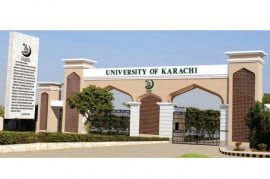Chief Minister Murad Ali Shah said this on Friday during a meeting with a delegation of the United Kingdom (UK) DDepartment for International Development (DFID), led by its head Joanna Reid, at Chief Minister House. The meeting was attended by Education Minister Jam Mehtab Dahar, Principal Secretary to the CM Sohail Rajput and Education Secretary Abdul Aziz Uqaili.
The chief minister said he pledged to bring reforms in the education and health sectors in his first speech as a chief minister in the Sindh Assembly. Since then, his government has been paying special attention to the education and health sectors. The CM highlighted reforms that have been introduced in the education department, which include separation of administration and teaching cadres, initiation of training programmes for the teachers and development of an audit system.
Meeting reviews new curriculum based on modern educational standards
The CM further said there has been an improvement in the ratings for education sector projects by multilateral funding agencies, which suggests that those agencies are recognising the education department's continuous efforts to improve financial management and internal controls. "We have established an internal audit in the finance department as well as in school education department," Murad said, adding that an SMS-based complaint system is also under way.
The education minister told the meeting that the Directorate of Monitoring and Evaluation has been established, which is fully functional throughout the province with live IT-based dashboard, independent monitors, data centres and biometric system for monitoring over 45,000 schools. The government is monitoring teachers' attendance and is taking care of other key indicators, said Dahar.
The education secretary said that there is a need for improving the existing school infrastructure. Many primary schools can be upgraded to secondary schools through construction of new classrooms, he said. Uqaili added that some basic facilities such as toilets, availability of drinking water and boundary walls are also required in many schools in the province.
2,000 closed schools to reopen in Sindh
The CM said the government has evolved a transparent policy for the recruitment of teachers. The teaching staff has been appointed through the National Testing Service (NTS), he said adding that, "We have decided to recruit non-teaching staff through NTS as well".
The DFID head appreciated the efforts of the Sindh government for the improvement of education and assured that the DFID would support the government to further strengthen the education.
1732762837-0/Taylor-(3)1732762837-0-405x300.webp)
















COMMENTS
Comments are moderated and generally will be posted if they are on-topic and not abusive.
For more information, please see our Comments FAQ